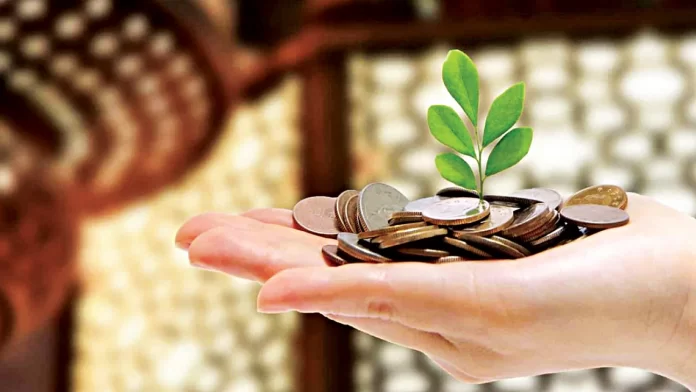“The example of those who spend their wealth in the way of Allah is like a seed of grain which grows seven spikes, in each spike is a hundred grains. And Allah multiplies the reward for whoever He wills, for Allah is all-Encompassing and knowing.” [Quran 2:261]
Why is Charity So Important in Islam?
Charity or alms, also called Zakat or Sadaka in Arabic, is the third of the five Pillars of Islam and thus, a fundamental teaching of the Islamic faith. Being charitable and taking care of the weak and poor are essential aspects of the Muslim character. Charity is so important that it comes only after the declaration of faith (shahada) and prayer (salat).
Charity is connected to generosity, a virtue that, not surprisingly, is central in Islam. It is considered a quality of the soul which Allah gives to those He loves, those who are not attached to material wealth and instead use what they are given to please God and, thereby, make the world a better place. That is, it is not the generous person herself who possesses the attribute of generosity, but Allah who, because of His love for that person, causes her to be generous. This distinction is essential to understanding Islam as a whole.
Muslims believe that everything we are given is bestowed upon us by Allah. We are merely trustees of these bounties and we are to use them in the best of ways, as Allah wills, to uplift the rest of His creation. It is the same with wealth. Wealth does not belong to us, but to Allah.
The Forms of Charity
Several different categories of charity are defined in Islam, the two most important being zakat (obligatory charity) and sadaqah (voluntary charity). Zakat is a specific, standardized percentage of one’s extra wealth (over and above the necessities of life) that must be given to the poor and those in need. Sadaqah can be given to anyone in many forms including a smile, wise advice, or helping to build a home or masjid.
The Prophet (PBUH) said: “Your smile for your brother is a charity. Your removal of stones, thorns or bones from the paths of people is a charity. Your guidance of a person who is lost is a charity.” (Bukhari)
Shade on the Day of Judgment
The Prophet (PBUH) said: “The believer’s shade on the Day of Resurrection will be his charity.” (Al-Tirmidhi)
On the day when all other shade will be gone, Allah will shade and shelter those who give charity and care for the poor. The Muslim’s sacrifice in this life will be their protection on the Day of Judgment.
A Protection From Calamity
By sacrificing part of one’s wealth and giving it in charity, the individual is guaranteeing protection for themselves from tragedy and misfortune.
The Prophet (PBUH) said: “Give charity without delay, for it stands in the way of calamity.” (Al-Tirmidhi)
Better to Give Than To Take
It is considered better to give charity than receive it. One should be wary of repeatedly soliciting and taking from sadaqa and zakat funds. Those who refrain from taking these funds (so that more will be left for the other needy) will be provided for by Allah and be made self-reliant by Him.
The Prophet(PBUH) said: “The upper hand is better than the lower hand (he who gives is better than him who takes). One should start giving first to his dependents. And the best object of charity is that which is given by a wealthy person (from the money left after his expenses). And whoever abstains from asking others for some financial help, Allah will give him and save him from asking others, Allah will make him self-sufficient.” (Al-Bukhari)
Relieving a person in debt is charity
The Prophet (PBUH) said: “If anyone would like Allah to save him from the hardships of the Day of Resurrection, he should give more time to his debtor who is short of money, or remit his debt altogether.” (Muslim)
If someone owes you money, it is considered charity if you show mercy, give the debtor more time to pay back his loan, or even cancel out the person’s debt. If charity is a person’s shade on the Day of Judgment, cancelling a person’s debt will also serve as a protection.
Helping Family in Need
It is acceptable to give one’s charity to those in need in one’s own family.
The Prophet (PBUH) said: “To give something to a poor man brings one reward, while giving the same to a needy relation brings two: one for charity and the other for respecting the family ties.” (Al-Tirmidhi)
The Pitfall of Greed
Be careful of greed. The longer one holds onto money and fails to share it as charity, the harder it may be later on to part with that hoarded wealth. Hiding away one’s wealth and depriving the needy of even a small kindness will not only come back to haunt the greedy, but their misfortune will be multiplied and they will be led down a misguided path.
Charity That Keeps On Giving
If a person performs a deed that continues to benefit others in a good way, the performer of the deed will continue to collect the rewards for her single act for as long as it benefits others (even after the person passes away). This is referred to as sadaqa jariyah, or perpetual charity.
The Prophet (PBUH) said: “When a person dies his works end, except for three: ongoing charity, knowledge that is benefited from, and a righteous child who prays for him.” (Muslim, Al-Tirmidhi, others)
The degree of the reward is dependent on the degree and significance of the benefit of the charitable act, and to what degree the charity was given for the sake of Allah.
Charity serves as a way to bring justice, balance and kindness to every society and community.



































